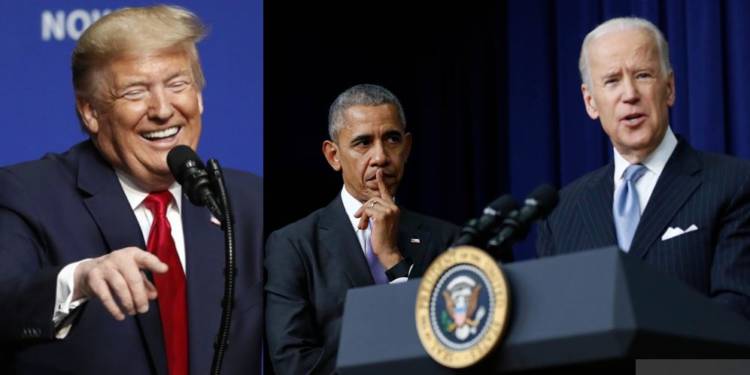Article, WORLD
US Diminishing Global Status Apparent In Recent Tensions With France Over AUKUS

The deep US resentment in Paris and Brussels stemming from Trump America's first policy has eroded the allies' trust
Joe Biden’s 2020 campaign anxiously promised a return to prominence regarding the USA’s status as the leader of the free world. Such remarks came as a relief to the international community following the deep embarrassment and alienation provided by the inflammatory rhetoric of the Trump years, in which many of America’s most consistent allies found themselves questioning its political stability.
However, since assuming power, affairs have proven to be complicated as Biden has found himself head of state in a world of rapidly shifting power dynamics.
Recently emerging tensions with consistent ally France over the controversial AUKUS pact have further cast into doubt the United States ability to exercise order within the same post World War environment which has existed since the mid 20th century, with France scornfully withdrawing its ambassadors from both the US and Australia in an unprecedented and abrupt reaction.
The BBC illustrated the curious precariousness of Australia’s decision to align itself with the US over China, calling the move “a gamble.” This choice perhaps would not have seemed so ambiguous ten or twenty years ago, when the question of US hegemony and stability was not so thoroughly under scrutiny.
Western Unity Hints At Signs of Fragility
A large part of what has defined the modern era has been the general unity of Western Europe and the United States in terms of dedication to mutual political interests. However, in recent years these commitments have been thrown under question, mostly owing to the novel political instability of the United States.
French foreign minister Jean-Yves Le Drian has repeatedly condemned the surprise AUKUS deal and has insinuated that it underscores the lasting influence of Trump on American foreign policy. He stated, “We thought that this [kind] of unilateralism and unpredictability, the brutality of the announcement, of the lack of respect for a partner, we thought these belonged to the past.”
Perhaps the rapidity at which western powers scrambled to assemble an arms deal, and their willingness to risk relations with old allies, underscores the increasing insecurity felt at the possibility of China’s rising global power.
France is particularly sensitive to the issue due to its foreign territories in the South China Sea. The increased presence of the Chinese military in the region in recent years has provoked irritation and unease. These preoccupations, it argues, make it a natural vested interest in a military collaboration in the region.
The AUKUS Deal And The Longtime Inequities On Display
Although France is the United States longest running ally, this relationship has been marred by the inequity of the power dynamic between the two nations, especially in contemporary times. The AUKUS deal and it’s subsequent sidelining of French interests in many ways embodies a decades-long modus operandi in terms of how the United States has approached its relationship with its allies.
It remains to be seen whether or not the habits the United States has engendered in terms of its approach to its friends will be able to stand, especially when the United States is in the midst of attempting to rebrand itself as a team player in the international community after Trump’s isolationism.

The EU at large has joined France in its concerns over how recent events have transpired. Outrage has bubbled forth about the exclusivity of what is perceived to be an alliance reserved for “Anglo-Saxon nations only.” The gatekeeping has prompted European nations to think about ways to focus more on the autonomy of their conglomerate.
There are indications that chagrin over the deal have spilled over into other powerful Western European democracies; German European
Affairs Minister Michael Roth stated that Germany “has a great understanding for the disappointment felt by our french partners.”
Relations between the UK and France seem to have remained steadfast despite the former’s involvement in the AUKUS deal – at least according to the UK heads of state. Boris Johnson has gone on record stating that “our love of France is ineradicable’’.
Johnson has gone on to stress that the AUKUS deal was not intended to be exclusionary, as he conveyed to a group of journalists at the UN general assembly: “AUKUS is not in any way meant to be zero-sum, it’s not meant to be exclusionary. It’s not something that anybody needs to worry about and particularly not our French friends.”
Signs of Reconciliation Among Accusations of Hypocrisy
In light of what has been perceived as blatant self-interest, the EU has scorned the AUKUS deal as betraying the United State’s insistence that it would like to maintain equitable relations with the rest of the west.
The move has been labeled as very in-line with “America First” prioritizations, despite the attempt of the Biden administration to proport itself as an organization that values the input of allies and coordinators.
Although the US has consistently downplayed the issue in response to France’s concerns, a private phone call between Biden and Macron has hinted that repairs to the fractured relationship may already be underway. However, in order to fully repair its standing amongst key partners, some extra efforts on the part of the US may be required.

